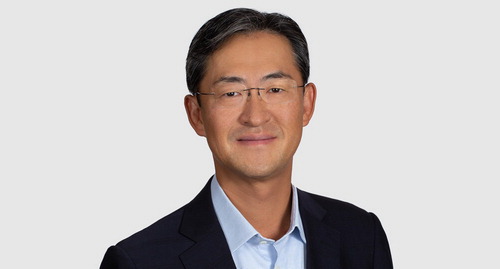 사진 확대
사진 확대 When Korea was in a desperate situation due to the IMF (International Monetary Fund) foreign exchange crisis, the issuance of foreign exchange equilibrium fund bonds (foreign equilibrium bonds) was a matter of the country’s fate. After a lot of hardships, the Korean government succeeded in issuing $4 billion worth of foreign bonds in 1998.
In the process, there was a young man who played behind the scenes for Goldman Sachs. He was a young man who worked for an American company but never considered himself Korean.
He graduated from Massachusetts Institute of Technology (MIT) in 1995 and joined Goldman Sachs. At that time, Goldman Sachs was one of two Korean-Americans selected when it hired more than 100 new employees. Born in 1973, he was a boy who settled in the U.S. at the age of 7, following his father, who moved to Minnesota to major in veterinary medicine.
He was selected as the co-CEO of the Bank of America (BofA) Investment Bank (IB) division on the 20th (local time). This is the story of Mike Joo (Korean name Joo Hee-chan).
After the global financial crisis, Merrill Lynch was absorbed by Bank of America. In terms of the former organization, he became Merrill Lynch’s CEO. Joseph Bae Kolberg, CEO of KKR, and Lee Kyu-sung, former CEO of Carlisle, are among those who have risen to the top of the global private equity fund as a Korean. However, CEO Mike Joo is the first Korean to become the CEO of a global investment bank such as Bank of America.
His rise to this position is not irrelevant to the rise in the status of “K Financial.” This is because the status of large institutional investors such as the National Pension Service and the Korea Investment Corporation (KIC) is increasing.
Bank of America’s global investment bank accounted for 6% of the market share this year following last year, but its profitability deteriorated somewhat. In the second quarter, IB fees fell 9% from the previous year to $1.4 billion.
CEO Joo, who was deployed as a relief pitcher, said, “We will streamline our business across 97 local markets,” adding, “We will target mid-sized market mergers and acquisitions (M&As) worth $500 million to $2 billion.”
Representative Joo, who has been in charge of North America, which accounts for 80% of BofA Securities’ sales, has been promoted to the general representative of IB. It has solidified its position as No. 2 in name and reality following Chairman Matthew Corder of BofA Securities. He is considered the highest-ranking Korean employee of Wall Street Global Securities.
Earlier, Chairman Corder praised Joo’s ability, saying, “His ability to provide a holistic solution across corporate and investment banks has been an important advantage in increasing market share.”
He has been with Bank of America since 2006 after working with Goldman Sachs and Credit Suisse. Since 2019, he has been recognized for his excellent work ability as the COO of the investment banking sector.
In particular, Joo was not the only one who was on a roll. He is an eternal mentor to Korean financiers on Wall Street. He is acting like the godfather of Wall Street’s Korean network. CEO Joo created the Korea Finance Society (KFS) in New York in 2009 with Sander Heo, CEO of Charles Bank Capital Partners. KFS, which started with about 200 members, has now increased its membership to 5,000 and is expanding the territory of Korean finance in the mainstream U.S. society. In addition, KFS continues to grow thanks to the solidarity of numerous Korean-American financiers, including friends from Harvard University who pushed and pulled each other, including CEO Sander Herr, CEO of AUDAX, and CEO of One Rock Capital Partners.
KFS is a non-profit organization that supports young Koreans in the United States to enter Wall Street, and has grown into the largest Korean financial community. Joo is still co-chairing the KFS with Heo.
[New York correspondent Lim Sung Hyun]